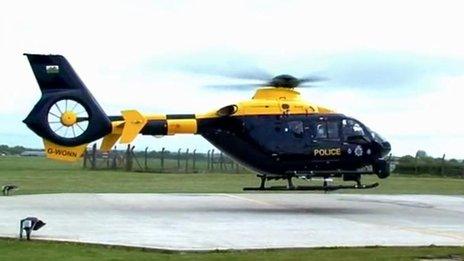Laser pen plane attack rise warning by police air service chief
- Published
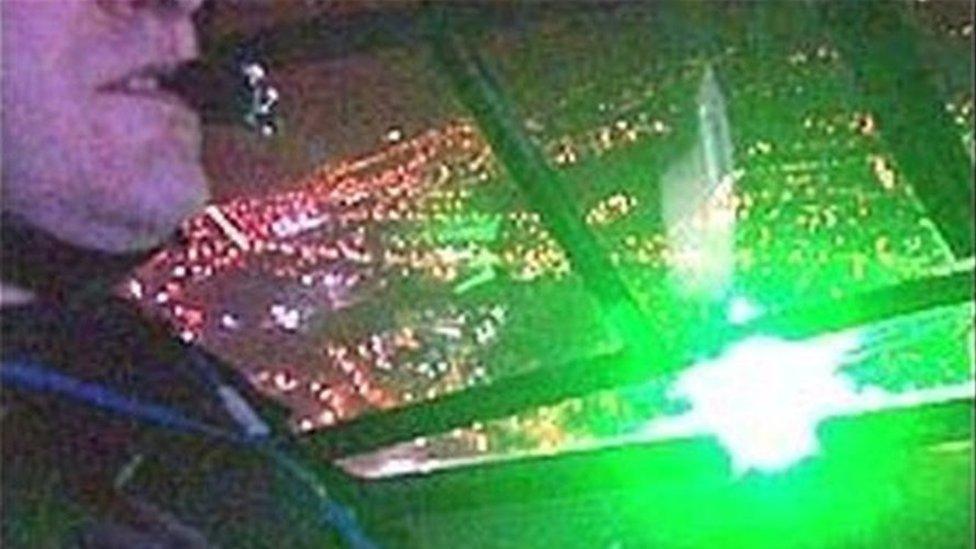
It is only a matter of time before someone dies as a result of attacks with laser pens, the head of safety for the National Police Air Service warns.
David Taylor, from Llandudno, says laser attacks on planes and helicopters in England and Wales have almost doubled in five year.
There were 746 incidents in 2009 and 1,442 last year.
NPAS, external now operate most of the UK's police helicopters, including those serving north and south Wales.
Stronger legislation
At the same time as the rise in attacks, the severity of the incidents has also increased as ever more powerful lasers become available.
Several pilots have suffered damage to their sight which may prove irreversible.
Mr Taylor represents NPAS on the multi-agency UK government's laser working group, which is pushing for stronger legislation around the purchase and use of laser devices.
It wants to bring Britain in line with countries such as Australia, New Zealand and the USA where laser attacks are federal offences and attract stiff penalties.
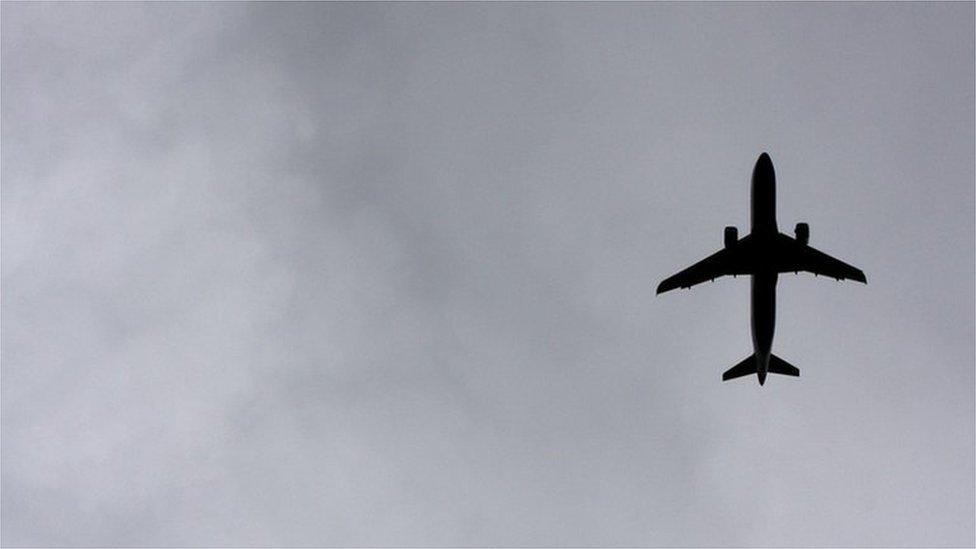
Mr Taylor believes that the increase in the strength of lasers available online has dramatically worsened the situation.
"Fifteen years ago laser pens were 1 milliwatt - roughly the power you'd need for a pointer in a classroom - but today it's extremely easy to pick up lasers on the internet of 5 to 7 watts; over five thousand times stronger, and easily enough to burn your name into a wall at close range," he said.
"Aside from a handful of highly specialised uses, there's absolutely no legitimate reason anyone could have for wanting such a powerful laser.
Laser pen attacks
England and Wales
1,142
attacks on aircraft in the last year
-
746 incidents reported in 2009
-
97 attacks made on NPAS helicopters in 2014
-
2-4 attacks per year (average) on Dyfed-Powys police helicopter
'Sophisticated sunglasses'
NPAS are currently trialling protective goggles for pilots, however Mr Taylor wants attacks to be prevented in the first place.
"Much better would be to mount a massive public-awareness campaign to make people realise that these things can be every bit as dangerous as knives, and to make their use as antisocial as smoking or drink-driving," he said.
"It's not just pilots, train drivers and motorists are being targeted, and given that, if we don't tackle this now it really is a matter of time until someone dies."

Police helicopters attacked
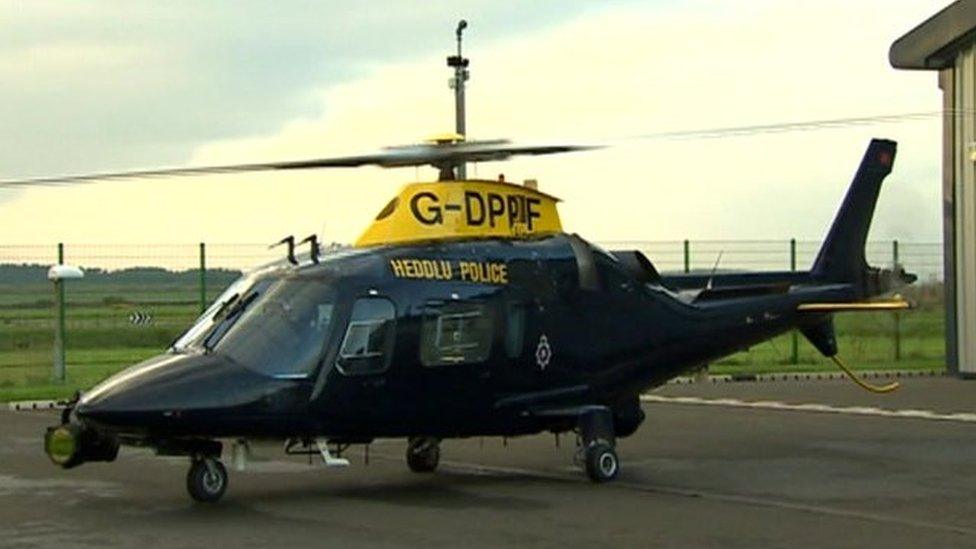
NPAS helicopters were attacked 97 times in 2014, and whilst specifically Welsh figures have only just begun to be collated this year, Mr Taylor believes they will be "in high single figures or low tens" for both the north and south Wales areas - which includes the Gwent Police area.
The Dyfed-Powys force said their helicopter is subjected to an average of two to four attacks per year.
However, Mr Taylor warned that these numbers are likely to be the tip of the iceberg, as many attacks go unreported.

- Published8 January 2013
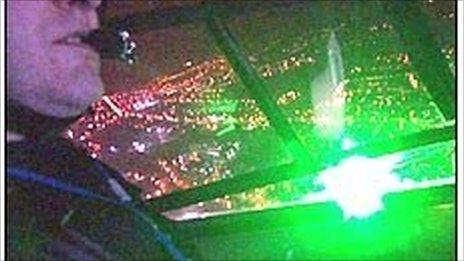
- Published28 March 2011
- Attribution
- Published27 March 2011
- Published9 December 2011
